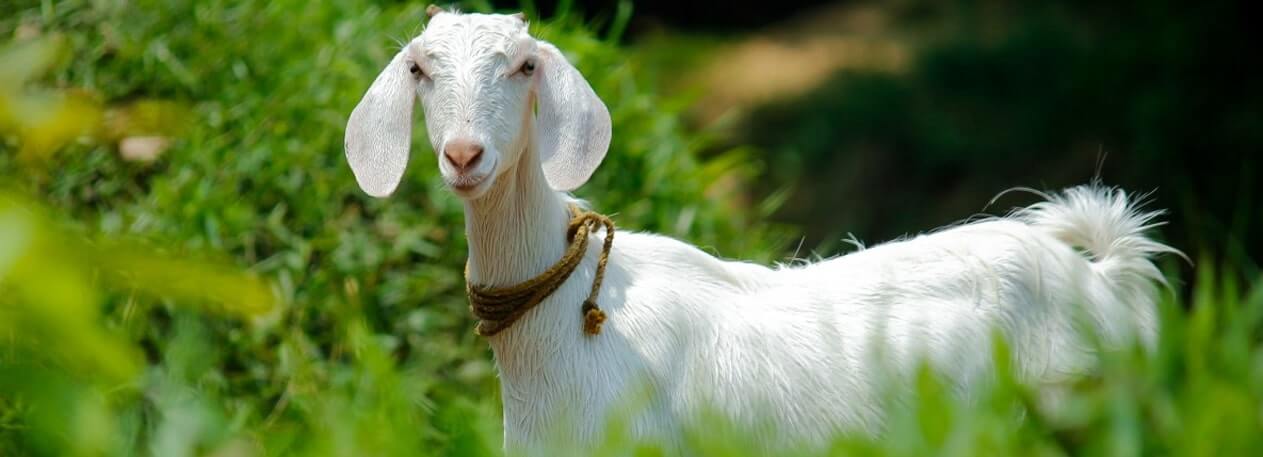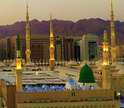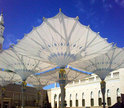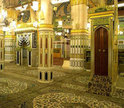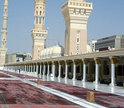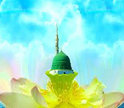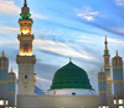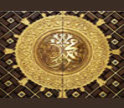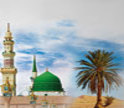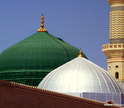Goat of Umm-e-Ma’bad
The next day, he صَلَّی اللّٰہُ تَعَالٰی عَلَیْہِ وَاٰلِہٖ وَسَلَّم reached the place called Qadeed where there was the home of Umm-e-Ma’bad ‘Aatikah Bint-e-Khalid Khuza’iyyah. She was an elderly lady. In the courtyard of her home, she would sit in a camp where she would serve travellers with food and water. The Greatest and Noblest Nabi صَلَّی اللّٰہُ تَعَالٰی عَلَیْہِ وَاٰلِہٖ وَسَلَّم wanted to buy food from her but she had nothing. He صَلَّی اللّٰہُ تَعَالٰی عَلَیْہِ وَاٰلِہٖ وَسَلَّم saw that there was a very weak goat at a side of her home. He صَلَّی اللّٰہُ تَعَالٰی عَلَیْہِ وَاٰلِہٖ وَسَلَّم asked her, ‘Does it produce milk?’ Umm-e-Ma’bad replied in the negative. He صَلَّی اللّٰہُ تَعَالٰی عَلَیْہِ وَاٰلِہٖ وَسَلَّم said, ‘Should I milk it, if you allow me?’ She allowed and he صَلَّی اللّٰہُ تَعَالٰی عَلَیْہِ وَاٰلِہٖ وَسَلَّم touched its udder reciting ‘بِسْمِ اللّٰە’. In an instant, the udder was full of milk and so much milk was taken from the goat that all drank it and all pots of Umm-e-Ma’bad were full of milk. Seeing this Mu’jizah [i.e. miracle], Umm-e-Ma’bad and her husband embraced Islam. It is narrated that this goat of Umm-e-Ma’bad remained alive till 18 AH and continued to produce milk. During the caliphate of Sayyiduna ‘Umar رَضِىَ اللهُ تَعَالٰی عَـنْهُ, a severe drought known as ‘عام الرماد’ occurred in which there was no milk in the udders of any animal. Even at that time, this goat continued to produce milk every morning and evening.


